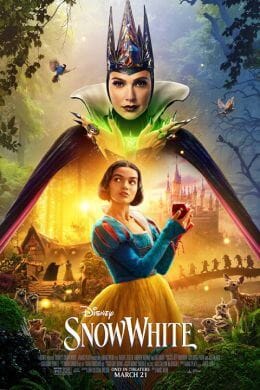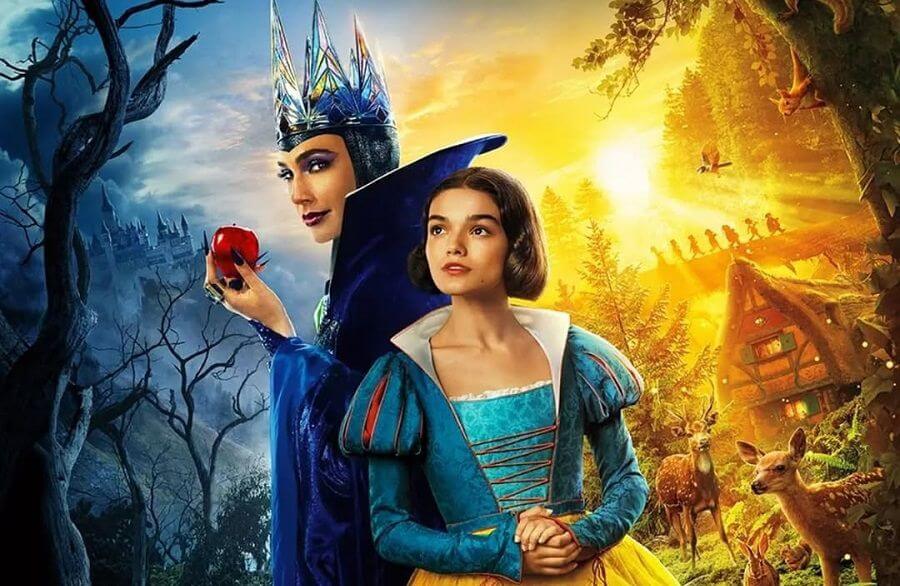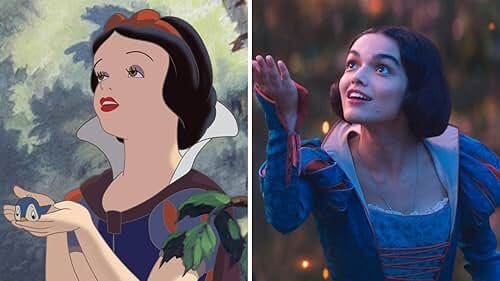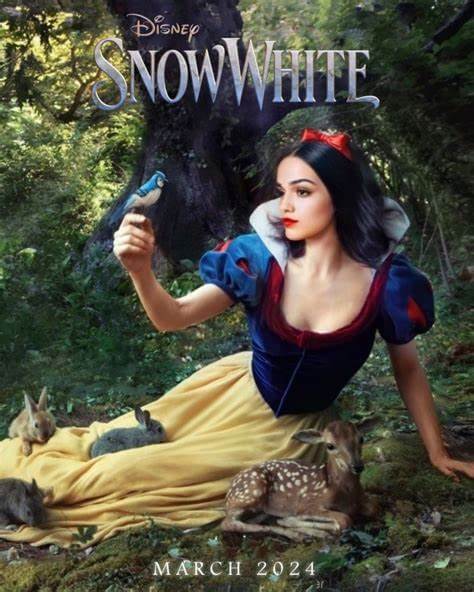Disney’s 2025 live-action version of Snow White diverges from the straightforwardness of the 1937 animated original, presenting an audacious, contemporary retelling that blends tradition with innovation.
Directed by Marc Webb and penned by Erin Cressida Wilson, this highly financed fantasy project aims to refresh the fairy tale for today’s audience—though it has ignited discussions among purists and critics.

A Novel Perspective on the Classic
Snow White (2025) is inspired by Disney’s 1937 animated feature, which itself was based on the Brothers Grimm’s cherished story.
However, this film opts not for a simple live-action remake, but instead reconstructs the narrative entirely, providing the characters with new motivations, deeper insights, and fresh elements that subvert the conventions of classic princess stories.
Rachel Zegler stars as Snow White, delivering a portrayal that is both sincere and determined.
This rendition presents Snow White not as a helpless figure, but as an emerging leader intent on reclaiming her kingdom from oppression.
Zegler’s charisma and vocal talents bring authenticity to a character who now shapes her own destiny rather than relying on a prince.
Villainy with Nuance
Gal Gadot takes on the role of the Evil Queen in an unexpected yet effective performance.
Typically seen as a flat villain fixated on vanity, this interpretation offers a more complex portrayal.
The screenplay delves into her ambition for power and her psychological unraveling, providing viewers with a more tragic—and daunting—adversary.
Gadot skillfully balances grace with danger, infusing the character with both elegance and raw intensity.

A New Character Joins
A significant change is the addition of Jonathan, portrayed by Andrew Burnap—an original character created for this film.
Jonathan is a bandit leader who gradually becomes a supporter of Snow White, introducing both action and emotional tension.
While some viewers may consider his inclusion unnecessary, others might appreciate his role in grounding Snow White’s evolution from outcast to revolutionary leader.
His character also fills the gap left by the absence of a conventional prince figure.
Visual Splendor and Musical Essence
Cinematographer Mandy Walker ensures that the film is a visual masterpiece.
Every scene, from the snowy forests to the magnificence of the Queen’s palace, is visually captivating.

The film’s aesthetic draws inspiration from both high fantasy and historical Europe, with the Alcázar of Segovia in Spain serving as a splendid filming site, particularly for the movie’s premiere in Europe.
The 109-minute film flows smoothly, with editing by Mark Sanger and Sarah Broshar maintaining pace during emotional and action-focused moments.
However, it is the score that truly shapes the film’s atmosphere.
The original music by Jeff Morrow integrates seamlessly with classic tracks from Larry Morey and Frank Churchill while accommodating the vibrant contributions of Pasek and Paul (known for La La Land and The Greatest Showman).
New songs like “Waiting On A Wish” replace the more passive melodies of “Someday My Prince Will Come,” advancing themes of autonomy and strength.
The musical sequences, although occasionally modern in style, feel naturally aligned with the reimagined story.
Themes of Agency and Leadership
In contrast to the passive portrayal of Snow White in 1937, Zegler’s interpretation is both politically astute and emotionally aware.
She secretly trains, builds alliances, and leads a small resistance group—all while coming to terms with her traumatic history and the weight of her legacy.
The film emphasizes themes of self-discovery, justice, and female empowerment.
It transcends mere fantasy—it’s a powerful statement.
The Seven Dwarfs, reinvented in this version, are depicted as a diverse group of forest inhabitants, reflecting contemporary values around inclusion and storytelling.
While this alteration faced initial backlash from certain audiences, it ultimately aligns with the film’s progressive objectives.
Audience Reception and Critical Divide
Following its U.S. premiere on March 21, 2025, Snow White received a range of reviews.
Critics lauded the movie’s visual ambition, performances (particularly those of Gadot and Zegler), and the invigorating music.
However, the departure from the original’s tone and narrative—especially the omission of cherished classic elements—became a point of contention.
Some critics claim that the film veers too far from its origins, transforming a straightforward fairy tale into a politically charged fantasy epic.
Conversely, there are those who commend the reimagined story, viewing it as a crucial progression for Disney’s storytelling in today’s climate.
Audience ratings reflect this split, with younger viewers offering strong positive responses while traditionalists voice their criticisms.
Financially, the film has not performed well at the box office, accumulating approximately $194.6 million worldwide against a production budget estimated between $240–270 million.
Although it isn’t a total failure, these figures indicate a mismatch between Disney’s expectations and audience turnout, which may have been influenced by the controversy surrounding early production imagery and character changes.
Strengths and Weaknesses
Strengths:
Innovative reworking of a beloved tale
Outstanding performances, particularly from Zegler and Gadot
Vivid cinematography and production design
Significant themes of empowerment and justice
Creative and emotionally impactful musical elements

Weaknesses:
Deviations from the original may alienate longtime fans
Absence of comedic relief in certain moments
Some newly introduced characters seem underdeveloped
Financial struggles may affect future adaptations
Final Thoughts
Snow White (2025) is more than just a rehash; it’s a transformation.
It defies nostalgic expectations and presents a narrative that resonates with contemporary values and aspirations.
Whether it achieves success in every aspect is debatable, but its ambition is unmistakable.
This film is not intended for those looking for a faithful recreation—it’s designed for audiences willing to view a classic tale through a fresh perspective.
In this respect, Marc Webb and his creative team deserve recognition for embracing a bold risk.
And although the box office results may not indicate a major success, Snow White (2025) is likely to find a renewed audience on streaming platforms, where its themes and stylistic choices may connect even more deeply with its target demographic.
Also check: must watch korean dramas









